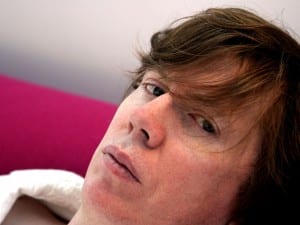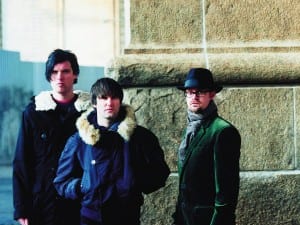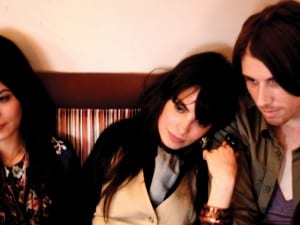Wolf Alice – the London-based foursome fronted by Ellie Rowsell – is proving that British indie guitar music is in rude health.
This May, Noel Gallagher complained to Music Week that “we are living in a world where guitar music has been marginalised.” Yet here is Wolf Alice – the London-based foursome fronted by Ellie Rowsell – proving that British indie is in rude health. “Guitar music is still brilliant!” says Roswell.
“It may not be in the charts as much as when Noel was in Oasis or whatever, but I can go see an amazing guitar band almost every day of the week in London.”
The guitar-music-is-dead debate is a predictably cyclical one, and whatever aging rockist icons maintain, the truth is that it’s easier than ever for guitar bands to break out – be they brilliant, switched-on acts with something relevant to say and tunes to match, or plain old landfill indie.
Wolf Alice has been around since 2010, when Rowsell began gigging at open mics around North London. A handful of EPs on, the acoustic, folksy duo has expanded to an electric rock foursome, lifting their nom du rock from a story by radical British fantasy and feminist author, Angela Carter. With the ink drying on their contract to Dirty Hit/RCA, the band are all set to release their debut album, My Love Is Cool. “I guess, compared with other bands in this internet era, we are quite slow burning. Going at our own pace has allowed us to get experience – in the studio, playing our instruments, writing and performing.”
My Love Is Cool, which Rowsell says is theme and concept-free (“although reoccurring motifs are there, which happened subconsciously”) coalesced under the tutelage of Arctic Monkeys’ producer Mike Crossey. Rowsell’s vocals take on a breathy, almost ethereal quality in places – the result of recent experimenting, she says. “Using your voice in a variety of ways and taking on different characters makes an album less boring. Your voice is just as much an instrument as anything else, and it’s incredible fun to experiment with it. It happens a fair bit in pop and hip hop – with artists like Sia, Nicki Minaj, Lana del Rey and Kendrick Lamar. It would be cool to bring that over into guitar music, I guess.”
Rowsell has seemed wary of engaging in recent, heated debates around sexism in the music industry – from Lauren Mayberry of Chvrches speaking out against violent, misogynist internet trolls to the ongoing debates around the lack of female performers on marquee festival line-ups. Is she fearful of being branded a feminist killjoy? No, she says. “I would like to see more girls picking up the guitar and drum sticks, and this needs to be addressed at an early stage – at school perhaps. I went to an all-girls school and didn’t know anyone who played the drums or the electric guitar, and that’s messed up. I’m not wary of the topic, but the most common thing I get asked about it is ‘how hard is it being a girl in a band?’ And from my experience it can be hard – but I never thought that was anything to do with being a girl.”
Charlotte Richardson Andrews





